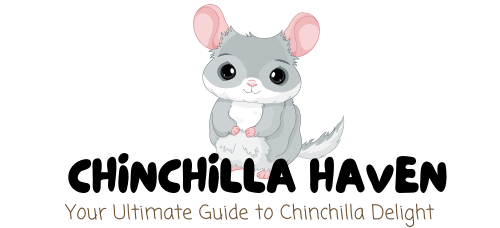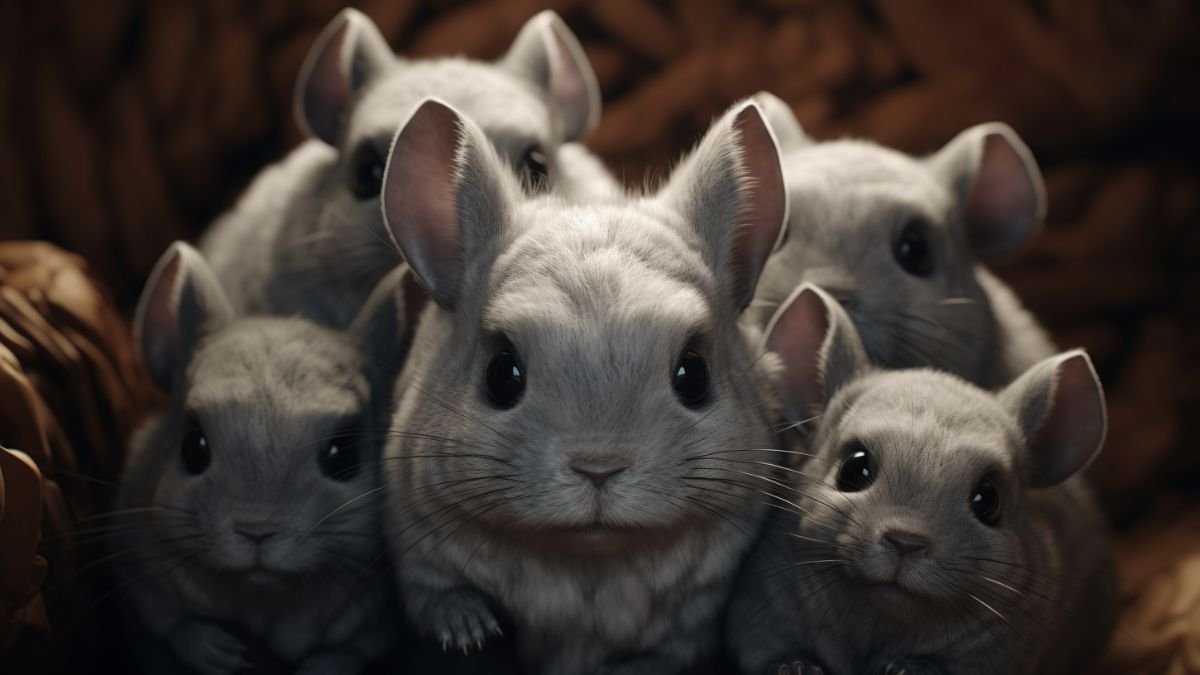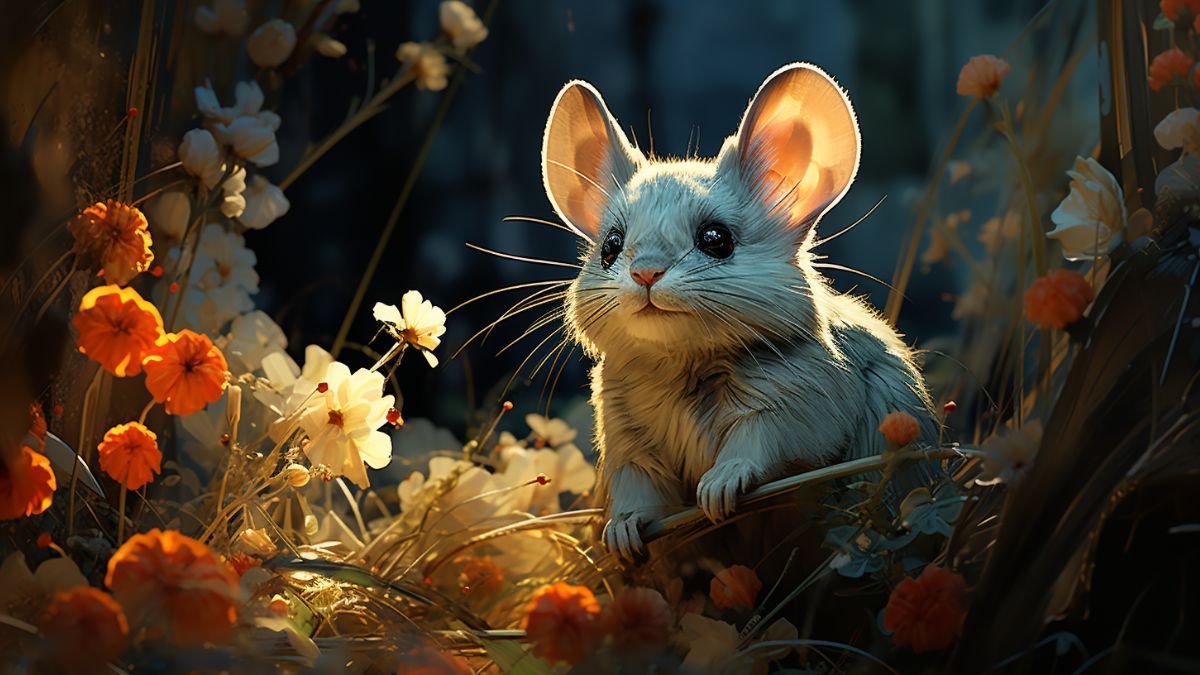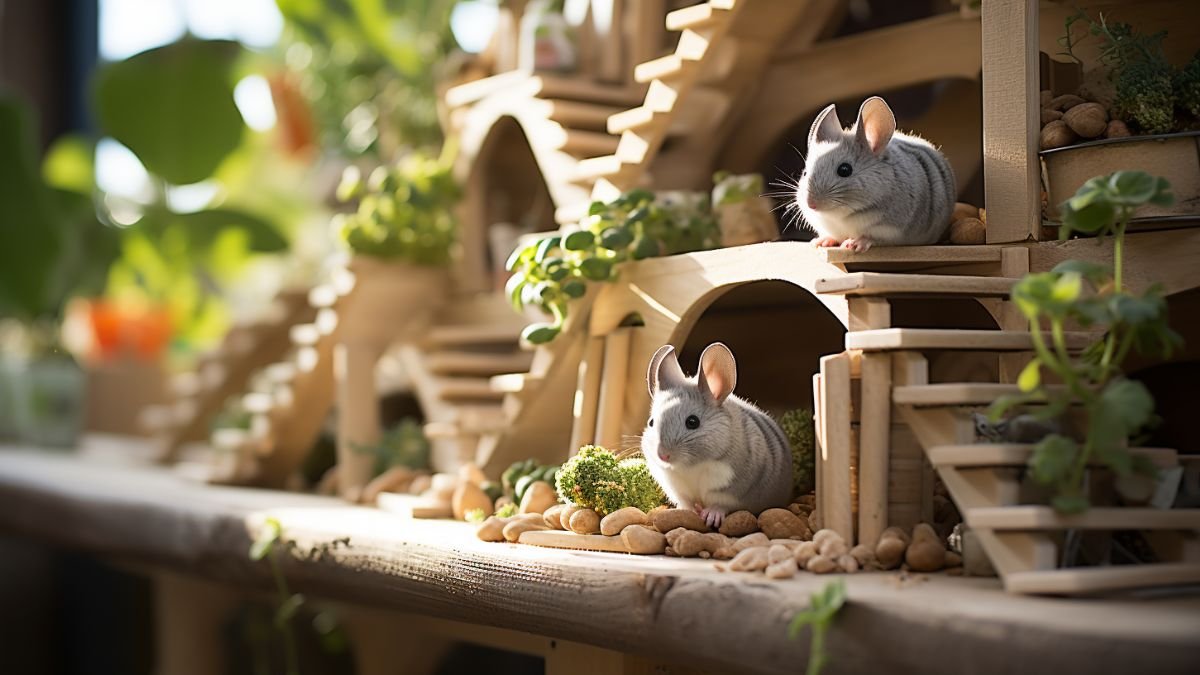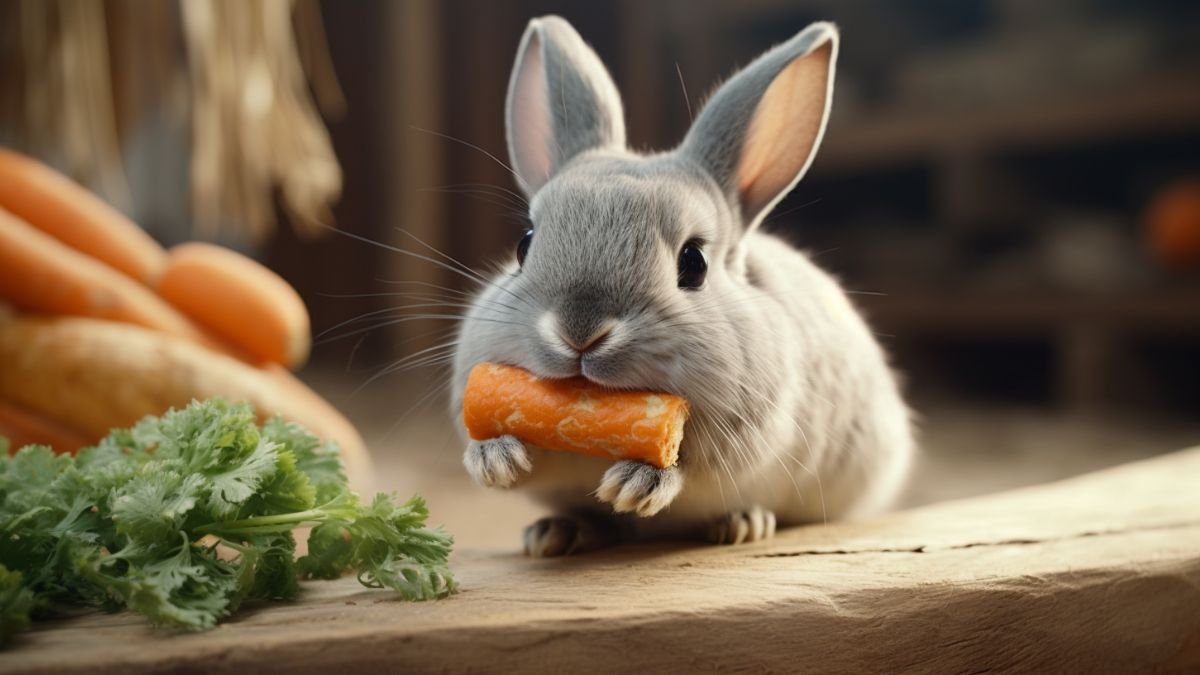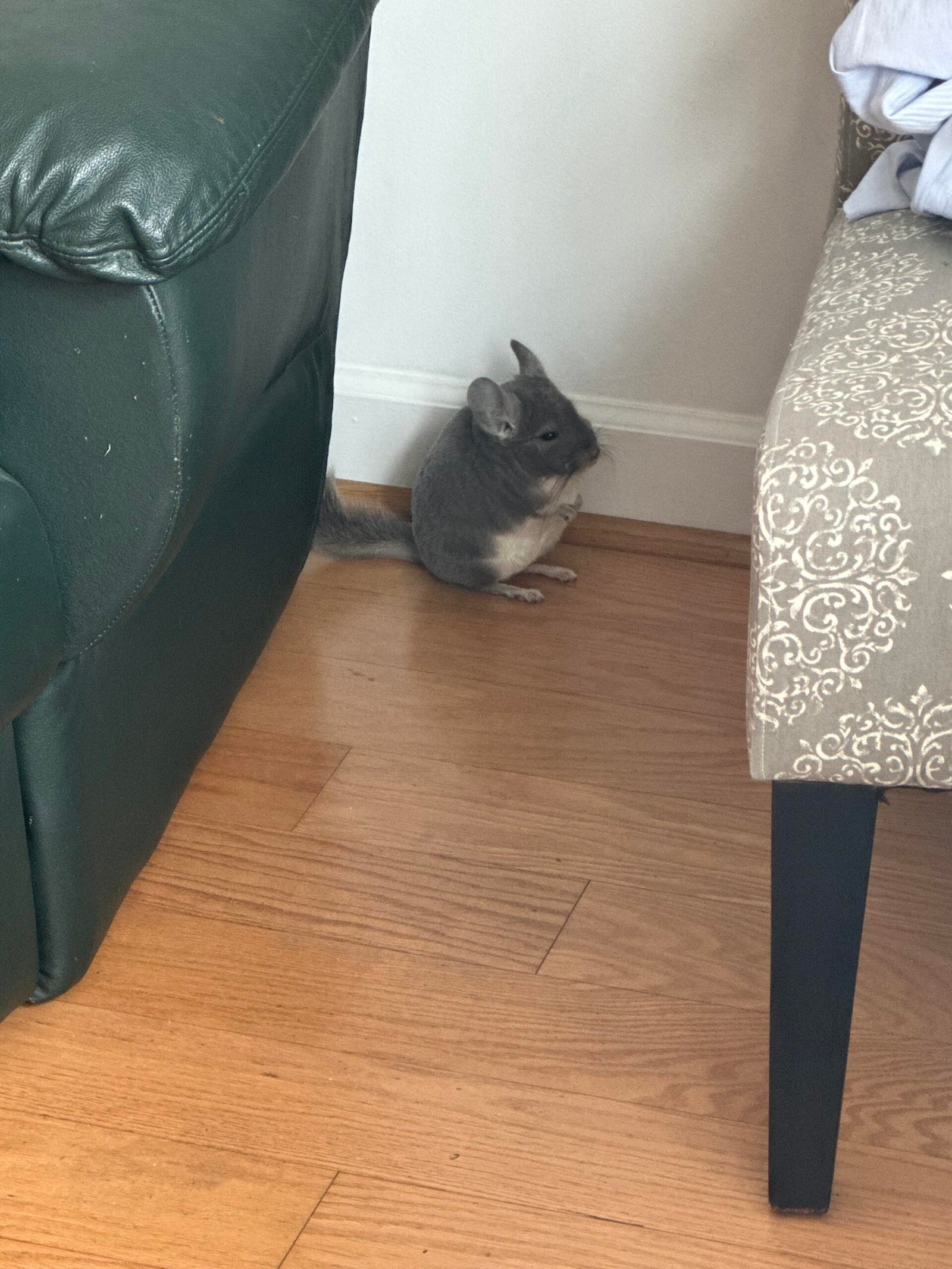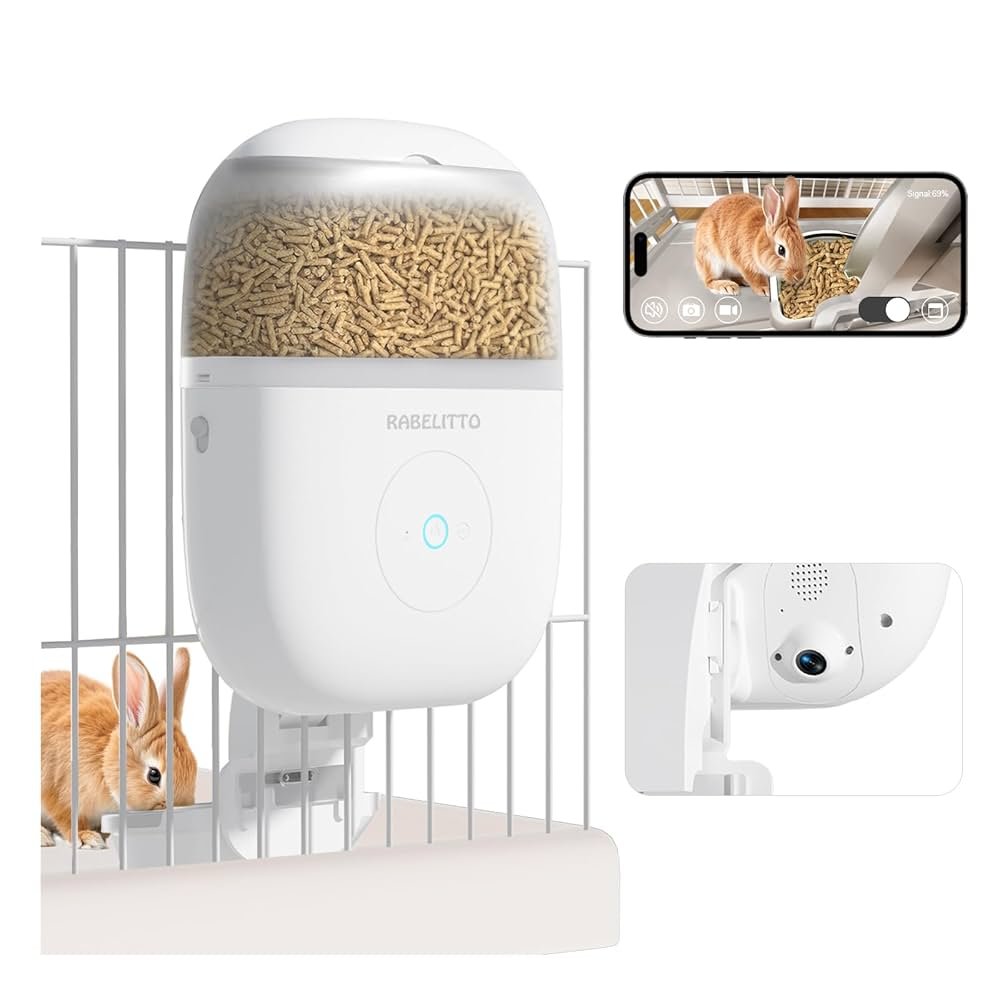
Keeping your chinchilla healthy starts with one simple step: monitoring its weight and diet closely. You might think it’s just about feeding them, but small changes in their eating habits or weight can signal big health issues.
Are you sure you’re spotting these signs early enough? You’ll discover easy and effective ways to track your chinchilla’s weight and manage its diet. By the end, you’ll feel confident in giving your furry friend the care it truly deserves.
Keep reading to unlock the secrets to a happier, healthier chinchilla.

Importance Of Weight Monitoring
Monitoring your chinchilla’s weight is very important for its health. Small changes in weight can show if your pet is healthy or not. Weight helps you see if your chinchilla is eating well and getting the right care.
Chinchillas are small animals with delicate health. Their weight can quickly change due to illness or diet problems. Watching their weight closely helps catch problems early. Early action can save your pet’s life.
Detecting Health Issues Early
Weight loss or gain can mean health problems. Sudden weight loss may show illness or stress. Weight gain might signal poor diet or lack of exercise. Checking weight often helps spot these signs fast.
Maintaining A Balanced Diet
Weight monitoring shows if the diet works. A good diet keeps your chinchilla active and strong. If weight changes, adjust the food to keep balance. This prevents obesity or malnutrition.
Tracking Growth And Development
Young chinchillas need careful weight tracking. Growth rates tell if they get enough nutrients. Healthy growth means your chinchilla’s diet is good. Slow or fast growth needs changes in care.
Ideal Weight Range For Chinchillas
Knowing the ideal weight range for chinchillas helps keep them healthy. Weight shows if a chinchilla has the right diet and care. Too much or too little weight can cause health problems.
Chinchillas should have a steady weight for their age and size. This range varies by individual but usually stays within certain limits. Monitoring weight supports early detection of illness or diet issues.
Average Weight Of Healthy Chinchillas
Most adult chinchillas weigh between 400 and 600 grams. Females tend to be slightly heavier than males. Young chinchillas weigh less but grow steadily until adult size.
Signs Of Underweight Chinchillas
Chinchillas under 400 grams may be underweight. Look for visible bones or a thin body shape. Low energy and poor fur condition also show weight problems.
Signs Of Overweight Chinchillas
Chinchillas above 600 grams might be overweight. They may have difficulty moving and appear rounder. Excess weight can lead to serious health issues.
Regular Weight Checks
Weigh chinchillas once a week for best results. Use a small digital scale for accuracy. Record the weight to track changes over time.
Tools For Accurate Weight Tracking
Tracking your chinchilla’s weight is key to their health. Using the right tools helps you get accurate and consistent readings. This makes it easier to spot any changes fast. Regular weight checks can show if your pet’s diet is working well.
Digital Pet Scales
Digital pet scales give precise weight measurements. They are easy to use and read. Small models fit perfectly for chinchillas. Some scales have a tare function to subtract the weight of a container. This helps weigh your chinchilla without stress.
Kitchen Scales
Kitchen scales work well for small pets like chinchillas. They offer good accuracy and are affordable. Place a small box or bowl on the scale, then weigh your chinchilla inside. Make sure the scale can handle your chinchilla’s weight.
Weight Tracking Apps
Weight tracking apps help keep all your data in one place. You can log daily or weekly weights easily. Some apps show charts to spot trends over time. Many apps allow notes for diet or health changes. This helps you track patterns clearly.
Setting A Regular Weighing Schedule
Setting a regular weighing schedule is important to keep your chinchilla healthy. It helps you watch their weight closely. You can spot small changes early. This can prevent serious health problems.
Weighing your chinchilla at the same time and day each week works best. Create a routine that fits your schedule. This makes it easier to remember and track their weight properly.
Choose The Right Scale For Accurate Weighing
Use a small digital scale for better accuracy. Kitchen scales or postal scales work well. Make sure the scale can measure grams for precise results.
Weigh Your Chinchilla Gently And Calmly
Hold your chinchilla gently on the scale. Keep the environment quiet to avoid stress. Calm pets give more accurate weight readings.
Record The Weight Immediately
Write down the weight right after weighing. Use a notebook or a digital app. This helps track changes over time clearly.
Recognizing Signs Of Weight Change
Recognizing signs of weight change in your chinchilla is key to keeping it healthy. Weight shifts can signal health issues or diet problems. Early detection helps you act fast and protect your pet’s well-being.
Visual Checks For Weight Loss Or Gain
Look at your chinchilla’s body shape often. Notice if it looks thinner or rounder than usual. Check the hips and spine areas. A sharp spine or visible ribs may mean weight loss. A bulging belly can suggest weight gain.
Changes In Behavior And Activity
Observe your chinchilla’s energy levels. Less movement or hiding more may point to health problems. Eating less or refusing favorite treats can also show weight issues. Weight change often affects mood and activity.
Regular Weighing And Tracking
Use a small scale to weigh your chinchilla weekly. Write down the numbers to watch trends. Small daily changes are normal. Big shifts in a short time need attention. Consistent tracking helps spot problems early.
Balanced Diet Essentials
Maintaining a balanced diet is key to a healthy chinchilla. It supports their energy, fur, and overall well-being. Knowing what and how much to feed helps keep their weight steady and avoids health issues.
Chinchillas need specific nutrients in the right amounts. Their digestive systems are delicate, so diet must be simple and natural. A balanced diet includes fiber, protein, and limited treats.
High-quality Hay
Hay is the main food for chinchillas. It provides fiber for good digestion. Timothy hay is a popular choice. Fresh, clean hay should be available all day. Avoid dusty or moldy hay to prevent sickness.
Pellets Designed For Chinchillas
Pellets give extra nutrients that hay cannot. Choose pellets made only for chinchillas. Check the label for no added sugars or nuts. Feed measured amounts to avoid weight gain.
Fresh Water Supply
Water is essential for chinchilla health. Use a clean bottle or bowl. Change water daily to keep it fresh. Proper hydration helps digestion and prevents illness.
Limited Fruits And Treats
Treats should be rare and small. Too many sweets can harm your chinchilla. Offer dried rose hips or small pieces of apple. Avoid chocolate, nuts, or seeds. Treats are not part of the daily diet.
Safe Treats And Supplements
Offering safe treats and supplements helps maintain your chinchilla’s health. Treats should be healthy and given in small amounts. Supplements support diet balance and fill nutrition gaps. Choose options that are gentle on their sensitive stomachs.
Safe Treat ChoicesFresh hay is the best treat for chinchillas. Timothy hay is tasty and good for digestion. Small pieces of dried rose hips or hibiscus flowers work well. Avoid sugary or fatty snacks that cause weight gain.
Vitamin SupplementsUse vitamin supplements only after vet advice. Vitamin C helps boost immunity. Calcium supports strong bones. Excess supplements can harm, so follow dosage instructions carefully.
Herbal AdditionsChamomile and peppermint herbs calm your chinchilla. These herbs aid digestion and reduce stress. Use dried herbs in tiny amounts to avoid stomach upset.
Monitoring Treat IntakeKeep treats under 5% of daily food. Too many treats upset diet balance and weight. Observe your chinchilla’s reaction to new treats. Stop any food causing discomfort or changes in behavior.

Adjusting Diet Based On Activity Levels
Adjusting your chinchilla’s diet according to its activity level is key to keeping it healthy. Active chinchillas burn more calories and need extra nutrients. Less active ones require fewer calories to avoid weight gain. Observing your pet’s daily habits helps you decide how much food to give.
Changes in playtime, running, or jumping affect energy needs. Tailoring the diet to match these changes supports good health. It also prevents problems like obesity or malnutrition.
Assessing Your Chinchilla’s Activity Level
Watch how much your chinchilla moves each day. Note the time spent running, climbing, or playing. A very active chinchilla may run several times daily. A less active one might rest more than usual. Keeping a simple activity log helps track these changes over time.
Adjusting Food Portions
Increase food slightly for active chinchillas to meet energy needs. Reduce portions if activity decreases to prevent weight gain. Use small, measured scoops to control the amount. Avoid free feeding, which can cause overeating.
Choosing The Right Foods
High-fiber hay should always be available. For active chinchillas, add a small amount of pellets rich in protein. Low activity pets need fewer pellets and more hay. Fresh vegetables can be added in tiny amounts based on activity.
Monitoring Weight Changes
Weigh your chinchilla regularly to check for weight gain or loss. Use a small scale accurate to grams. Record the weight and compare weekly. Sudden changes in weight may signal a diet problem or health issue.
When To Consult A Veterinarian
Knowing when to seek help from a veterinarian is key to keeping your chinchilla healthy. Weight and diet changes can signal health issues that need professional care. Early action can prevent serious problems.
Watch for signs that show your chinchilla needs a vet’s attention. Some changes are subtle but important. Don’t wait too long to get expert advice.
Significant Weight Loss Or Gain
Rapid weight loss or gain can be dangerous. Your chinchilla should have a steady weight. Sudden changes may mean illness or diet problems. A vet can find the cause and suggest treatment.
Loss Of Appetite Or Changes In Eating Habits
A chinchilla that stops eating or eats less needs a checkup. Eating less can lead to weakness and other issues. A vet can check for dental or digestive problems.
Unusual Behavior Or Lethargy
If your chinchilla becomes very tired or acts strange, it needs help. Lethargy may be a sign of pain or illness. A vet exam can find hidden health problems.
Visible Signs Of Illness
Look for swelling, discharge, or skin changes. These signs show infection or injury. A vet can provide the right treatment quickly.
Difficulty Moving Or Breathing
Problems walking or breathing need urgent care. These symptoms can be serious and need a vet immediately. Early treatment improves recovery chances.

Frequently Asked Questions
How Often Should I Weigh My Chinchilla?
Weigh your chinchilla once a week to track weight changes easily and spot health issues early.
What Is The Ideal Weight For A Chinchilla?
Most chinchillas weigh between 400 and 600 grams, depending on age and gender.
How Can I Tell If My Chinchilla Is Overweight?
Look for a rounded body, difficulty moving, and less activity as signs of extra weight.
What Foods Help Maintain A Healthy Chinchilla Diet?
Provide fresh hay, pellets, and limited treats like dried rose hips or plain oats.
Can Sudden Weight Loss Harm My Chinchilla?
Yes, sudden weight loss can signal illness; contact a vet if you notice quick changes.
How Do I Measure Chinchilla Food Portions Correctly?
Use a small measuring cup and feed about 1-2 tablespoons of pellets daily, plus unlimited hay.
Should I Track My Chinchilla’s Water Intake?
Yes, fresh water is crucial; check and refill water daily to keep your chinchilla hydrated.
What Signs Show My Chinchilla Needs A Diet Change?
Watch for weight gain, lethargy, or digestive issues, which may mean diet adjustments are needed.
Conclusion
Monitoring your chinchilla’s weight and diet helps keep it healthy. Check weight regularly with a small scale. Watch for any sudden changes in weight or eating habits. Feed a balanced diet with hay, pellets, and fresh water. Avoid sugary treats or too many snacks.
Keep a daily log to track progress. Regular care prevents health problems and ensures a happy chinchilla. Small efforts make a big difference in your pet’s well-being. Stay consistent and patient for the best results. Your chinchilla will thank you with good health and energy.
